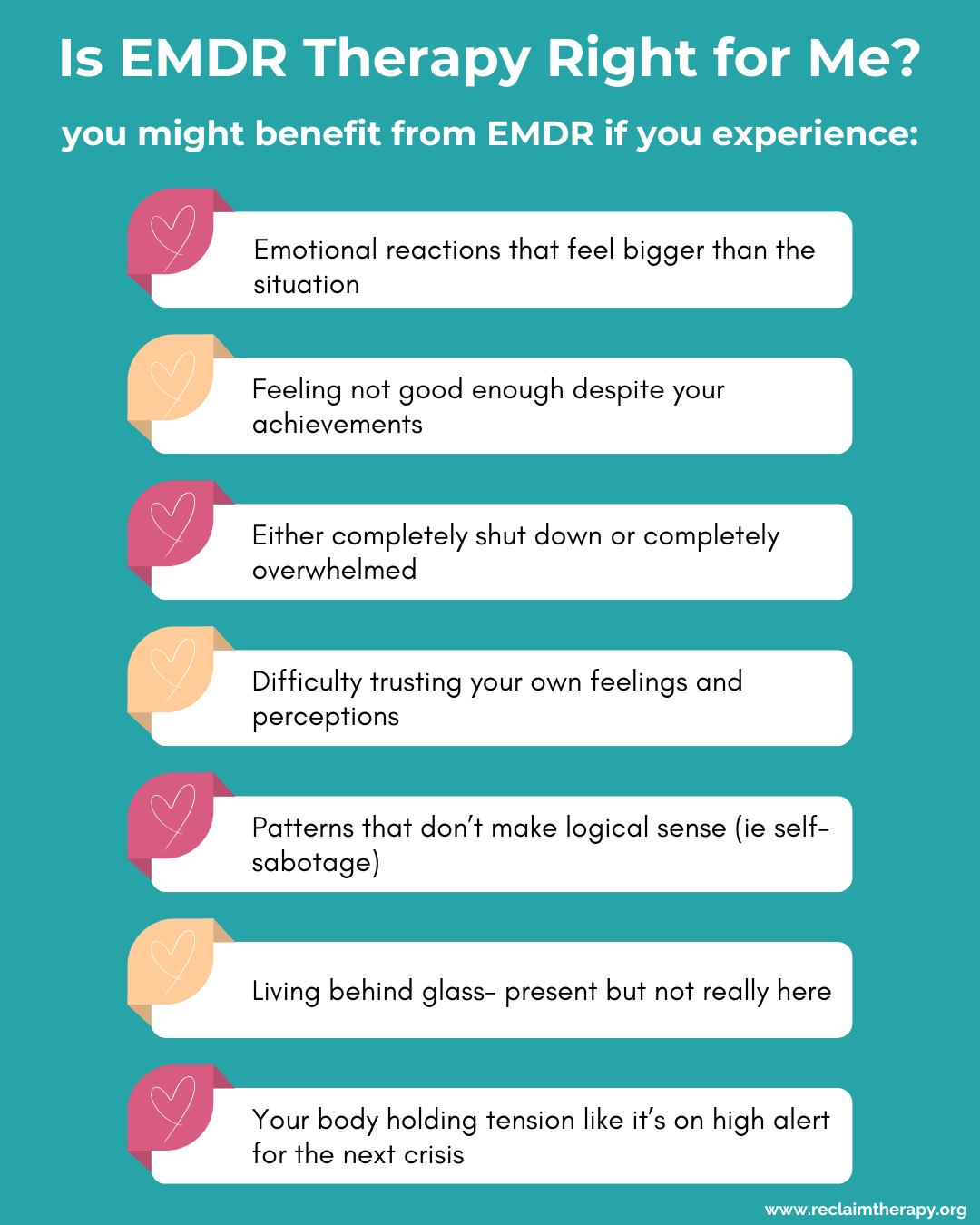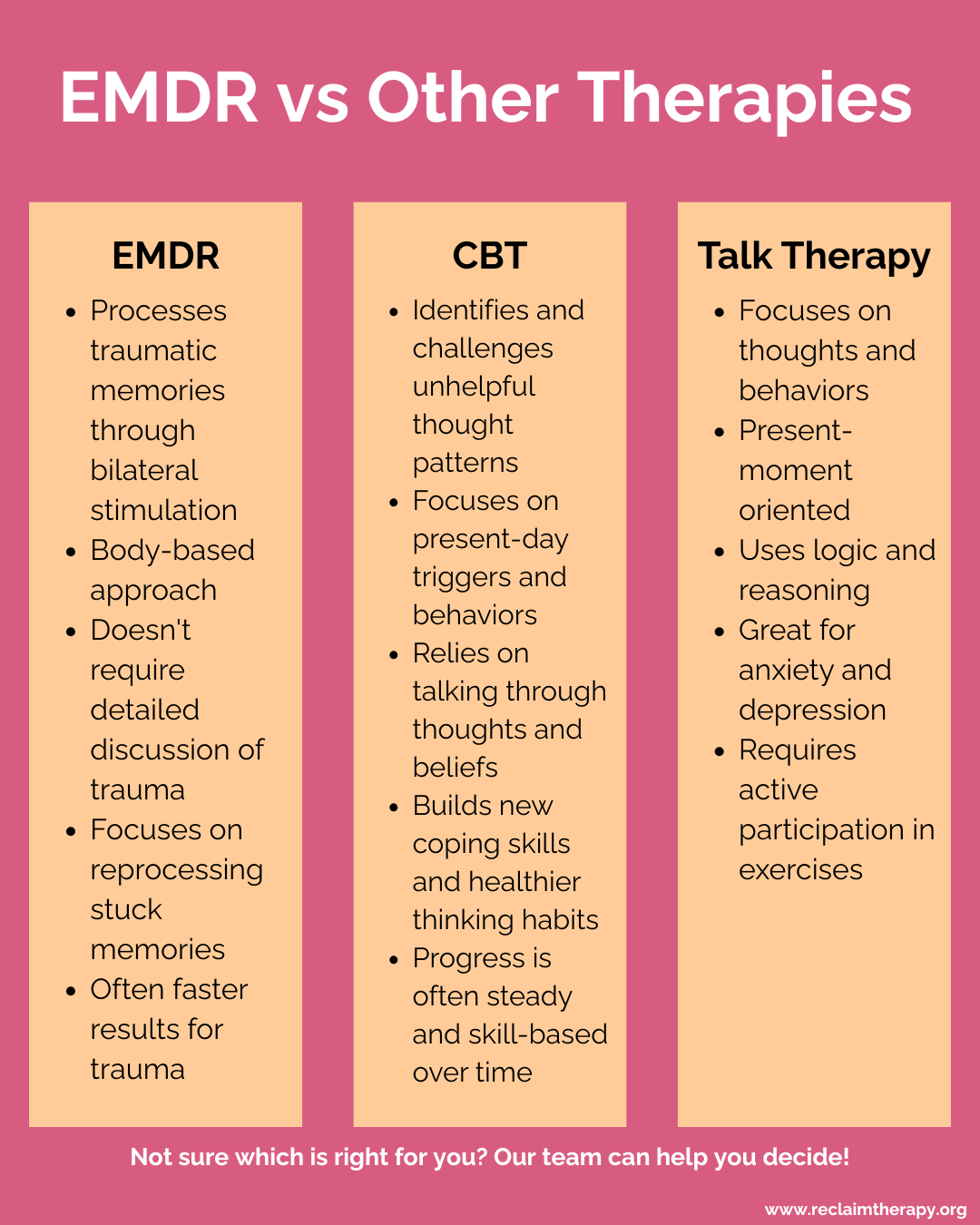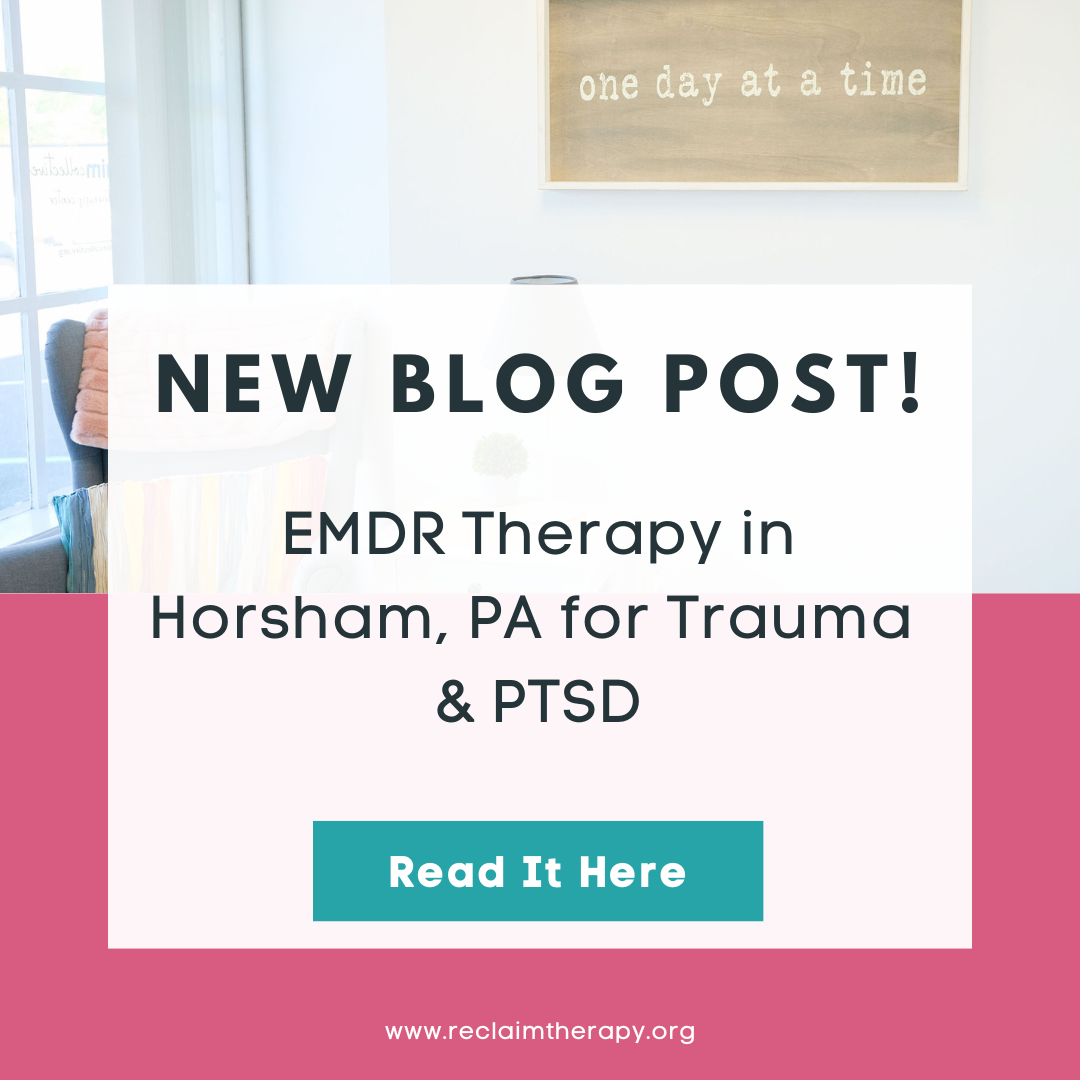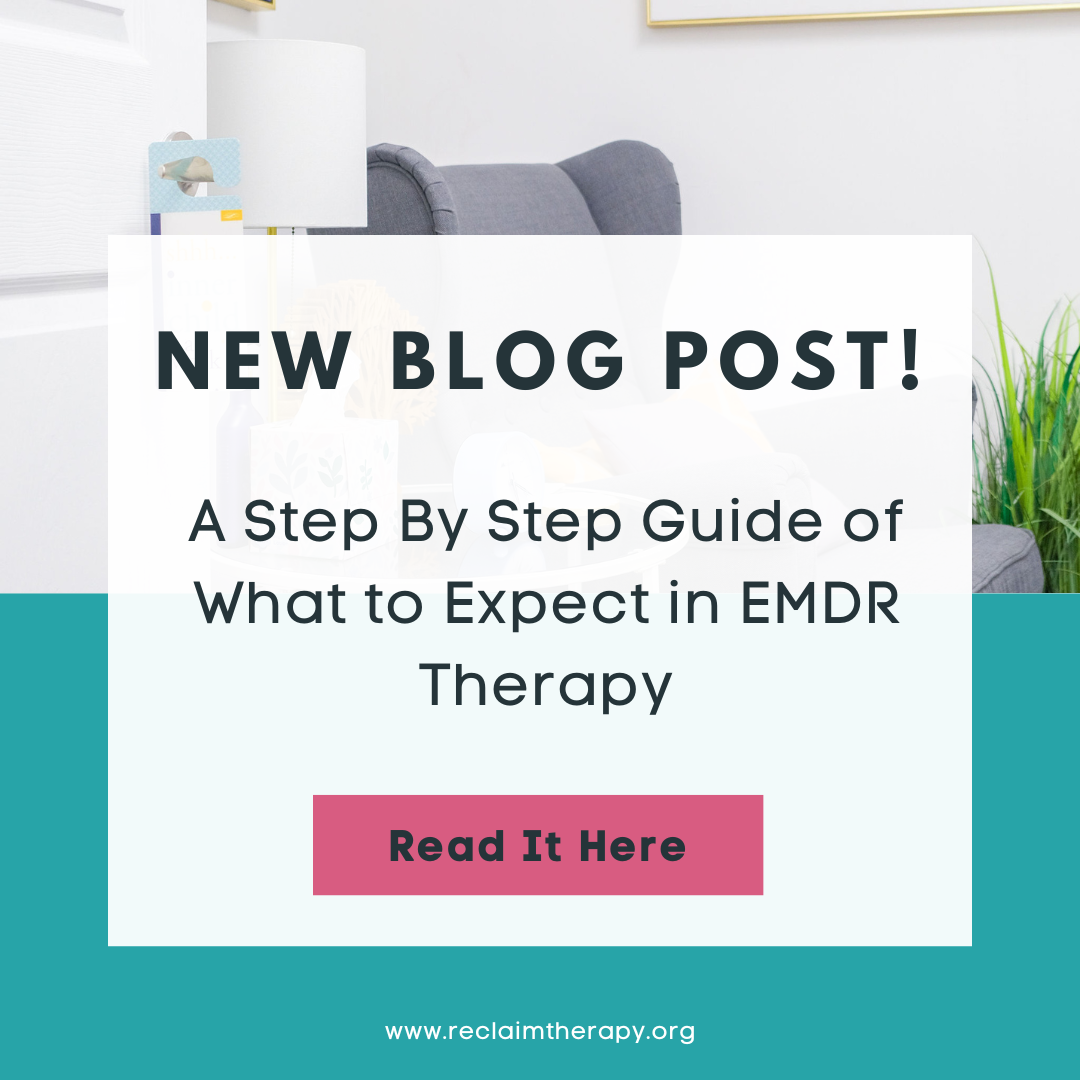Is EMDR Right for Me? A Guide for Complex Trauma Survivors
You're Googling "is EMDR therapy right for me" at 2 AM again, aren't you?
Listen, I get it.
You've heard about EMDR therapy, maybe from a friend, a podcast, or that one Instagram therapist who actually makes sense.
But now you're spiraling through WebMD-level research wondering if you're "traumatized enough" to need EMDR treatment, or if what happened to you even "counts."
Here’s the thing: if you’re asking this question, you probably already know something needs to shift. Your nervous system wouldn’t be sending you on late-night research missions if everything was fine. Take this opportunity to explore EMDR therapy as a way to address your concerns and begin your healing journey.
First, Let's Clear the Air About What "Counts"
"But what happened to me wasn't that bad..."
This is probably the most common thing I hear in my practice, and it breaks my heart every time.
Here's what I want you to know: your nervous system doesn't give a damn about whether your trauma would make it into a Lifetime movie. It cares about whether a little kid felt safe, seen, and soothed.
Period.
Childhood emotional neglect - the things that didn't happen - can be just as impactful as the big, obvious traumas. The parent who was physically present but emotionally unavailable. The family that looked perfect on the outside but felt empty on the inside. The subtle messages that your feelings were "too much" or that you needed to be smaller, quieter, easier.
Your body remembers what your mind tries to minimize.
"I can't remember most of my childhood..."
And here comes myth number two: that you need crystal-clear memories for EMDR to work.
Plot twist: you don't.
EMDR works with whatever your system is ready to process - whether that’s specific memories, body sensations, emotions that seem to come from nowhere, or just that general feeling of “something’s not right.” Sometimes the most profound healing happens when we work with the felt sense of an experience rather than trying to construct a perfect narrative.
Your body kept the score, as Bessel van der Kolk says, even when your conscious mind checked out to survive. Past experiences, even those you may not consciously remember, can continue to affect you. These responses are often trauma related, even if the specific memories are unclear.
"Will EMDR help me remember what I've forgotten?"
Ah, the million-dollar question that comes with a side of anxiety and a dash of hope.
Here's the honest answer: maybe, but that's not actually the goal.
Sometimes during EMDR processing, memories do surface - fragments, images, sensations, or emotions that feel connected to earlier experiences. But here’s what I need you to understand: EMDR isn’t archaeological dig therapy. We’re not trying to unearth every detail of your past like some trauma-focused treasure hunt.
What EMDR actually does is help your brain process and integrate experiences, whether you remember them clearly or not. EMDR is a type of reprocessing therapy designed to help the brain integrate difficult experiences and support healing from trauma. Sometimes this processing brings more clarity about past events. Sometimes it doesn’t change your memory at all but changes how your body responds to triggers in the present.
And honestly? Sometimes the most healing happens when we stop trying so hard to remember and start focusing on how to live fully right now.
The absence of memory doesn’t mean the absence of healing. Your nervous system can learn safety whether your conscious mind fills in all the blanks or not.
What is EMDR?
A gentle introduction to Eye Movement Desensitization and Reprocessing
EMDR therapy—short for Eye Movement Desensitization and Reprocessing—is a powerful psychological treatment designed to help people heal from traumatic events, distressing memories, and other forms of psychological trauma. Unlike some therapies that require you to talk through every detail of a traumatic event, EMDR therapy takes a different approach. It focuses on helping your brain reprocess traumatic memories so they lose their emotional charge and stop interfering with your present life.
At its core, EMDR therapy uses bilateral stimulation—often in the form of guided eye movements, taps, or sounds—to help your brain process and integrate distressing memories. This process, known as movement desensitization and reprocessing, allows your mind to make sense of what happened in a safe, structured way. The goal isn’t to erase the memory, but to help you experience it with less pain, fear, or shame, and to support adaptive information processing so you can move forward.
EMDR therapy is especially helpful for those who have experienced trauma, whether from a single traumatic event or from ongoing, complex trauma. It’s also used to address anxiety, depression, and other mental health concerns that stem from unresolved distressing memories. If you’ve found that traditional talk therapy hasn’t fully helped you move past certain experiences, EMDR offers a different path—one that doesn’t require you to relive every moment, but instead helps your brain heal in a way that feels manageable and empowering.
Who Is a Good Candidate for EMDR Therapy?
You might be ready for EMDR therapy if you:
Feel stuck in patterns that don't make logical sense (hello, self-sabotage my old friend)
Have emotional reactions that feel way bigger than the situation calls for
Struggle with feeling "not good enough" no matter what you achieve
Find yourself either completely shut down or completely overwhelmed - no middle ground
Have a hard time trusting your own perceptions or feelings
Feel like you're living behind glass - present but not really here
Keep attracting the same type of relationships or situations
Have a body that holds tension like it's training for the stress Olympics
Is EMDR therapy effective for these conditions?
EMDR for CPTSD and developmental trauma - This is where we specialize. EMDR can treat a range of conditions, including PTSD and other distressing life experiences. EMDR helps reorganize those early attachment experiences that taught your nervous system the world wasn’t safe. EMDR is widely used to treat PTSD and related trauma.
Childhood emotional neglect - We can work with the absence of experiences just as powerfully as with traumatic events.
Anxiety disorders that feel bigger than your current life - Often this is your system still responding to old threats.
Depression with roots in early experiences - When sadness feels ancient and familiar.
Perfectionism and people-pleasing - These adaptive strategies that once kept you safe but are now getting in the way. EMDR can also be effective for other distressing life experiences beyond those listed here.
Finding the Right Therapist
What to look for in an EMDR therapist
Choosing the right EMDR therapist is a crucial step in your healing journey. Not all therapists are trained in EMDR therapy, so it’s important to seek out someone who is a qualified EMDR therapist with specialized training and experience in this approach. A skilled EMDR therapist will understand the unique needs of trauma survivors and know how to adapt the EMDR protocol to fit your specific circumstances.
When searching for an EMDR therapist, look for someone who has completed advanced EMDR training and has experience working with clients who have faced traumatic events. The right therapist will create a safe, supportive, and non-judgmental environment where you feel comfortable exploring difficult memories at your own pace. They should be able to explain the EMDR process clearly, answer your questions, and work collaboratively with you to develop a treatment plan that honors your needs and boundaries.
Remember, finding a therapist who feels like a good fit is just as important as their credentials. Trust your instincts—if you feel seen, heard, and respected, you’re more likely to get the most out of EMDR therapy. Healing from trauma is a deeply personal process, and the right EMDR therapist can make all the difference as you work toward reclaiming your sense of safety and well-being.
When You Might Want to Wait (And That's Okay Too)
Look, I’m not going paint a picture of sunshine and rainbows and tell you EMDR is right for everyone at every moment. Sometimes the timing isn’t quite right to work the entire EMDR process.
You might want to hold off if:
You're in active crisis or your safety is at risk
You have significant dissociation without good grounding skills yet
You're dealing with active substance use as your primary coping mechanism
You don't have basic life stability (housing, safety, support)
You're not ready to feel feelings (and that's valid. Survival mode serves a purpose.)
Here's the thing about readiness: it's not about being "strong enough" or "healed enough." It's about having enough resources, internal and external, to handle what comes up during processing.
Sometimes we need to build those resources first. That might mean working on grounding techniques, establishing safety, developing coping skills, or addressing other mental health concerns.
How Does EMDR Work for Complex Trauma?
If you’re dealing with CPTSD, EMDR therapy isn’t going to be a magic wand that fixes everything in eight sessions. (Sorry, but I promised you real talk.)
EMDR is a form of trauma therapy that involves several phases and often requires multiple sessions to effectively process complex trauma. This approach helps clients work through disturbing experiences and distressing events without needing to relive every detail.
Complex trauma work is more like renovating a house while you’re still living in it. We work on one room at a time, making sure the foundation is solid, and sometimes we have to pause construction to deal with a leaky pipe or rewire the electrical.
What EMDR treatment can do for complex trauma:
Help your nervous system learn that the past is actually past
Reduce the emotional charge of traumatic memories
Increase your capacity to stay present during difficult emotions
Help you develop a more compassionate relationship with yourself
Build resilience and adaptive coping strategies
Process not just what happened, but what didn't happen (those unmet needs)
What EMDR works well with:
As a somatic experiencing practitioner too, I can tell you that EMDR and body-based work are like peanut butter and jelly. EMDR helps process the memories and emotions, while somatic work helps your nervous system learn new patterns of regulation.
Many of my clients also benefit from ongoing talk therapy, medication management, or other healing modalities alongside EMDR. Healing isn't a competition, use all any tool that serves you.
Are You Ready for EMDR Therapy? A Self-Assessment
Ask yourself these questions (and be honest, this is just between you and your journal):
Do I have at least one person in my life I can reach out to for support?
Do I have basic coping skills for when I'm overwhelmed?
Am I in a relatively stable place in my life right now?
Am I willing to feel some discomfort in service of healing?
Do I have realistic expectations about the pace of healing?
If you answered yes to most of these, you might be ready to explore EMDR treatment.
If you answered no to several, that doesn't mean you're not ready for healing, but it might mean you'd benefit from some preparation work with an EMDR therapist first.
Here's the thing about readiness: you don’t have to figure this out alone. A skilled EMDR therapist can help you assess your readiness and work with you to build whatever resources you need before we dive into processing. And guess what? That preparation is a part of EMDR Therapy. Unlike other therapists, EMDR therapists are trained to take the necessary time in the preparation phase, rather than rushing or skipping essential steps, to ensure you feel safe and supported.
This might look like:
Learning grounding techniques that actually work for your nervous system
Building distress tolerance skills
Strengthening your support network
Working through any barriers to feeling safe in therapy
Addressing immediate safety concerns or life stressors
Developing a stronger sense of your own resilience and capacity
Think of this preparation phase as laying the groundwork for deeper healing. It’s not remedial work, it’s essential work that is a big part of EMDR. Some of my clients spend several EMDR sessions just learning to notice when they’re triggered, practicing body scans, and how to come back to their bodies. That’s not a delay in their healing; that’s the foundation of their healing.
Here's what I want you to remember: looking for an EMDR therapist is brave. No matter where you are in the process.
It’s about honoring the resilient, adaptive part of you that survived difficult circumstances and saying, “hey, we made it through. Now let’s see if we can do more than just survive.”
You don’t have to earn your spot in therapy. You don’t have to prove your trauma was “bad enough.” You don’t need perfect memories or a clear narrative.
What you need is curiosity about whether there’s another way to live. One where your past informs your present instead of hijacking it. EMDR focuses on changing how memories are stored and experienced in the brain, helping to reduce emotional distress without erasing the memories themselves. Through this process, negative beliefs about yourself can be replaced with positive beliefs, supporting healing and growth.
If you’re still on the fence, we want you to know that the fact that you’re asking “is EMDR right for me?” suggests some part of you knows it’s time to try something different.
Trust that part.
Your healing matters. Your story matters. And you deserve to feel at home in your own skin.
Ready to explore whether EMDR therapy is right for you? Our team of certified EMDR therapists specialize in complex trauma and childhood emotional neglect. Contact us today to learn more about EMDR treatment and how it can help you heal from trauma.
🧡,














